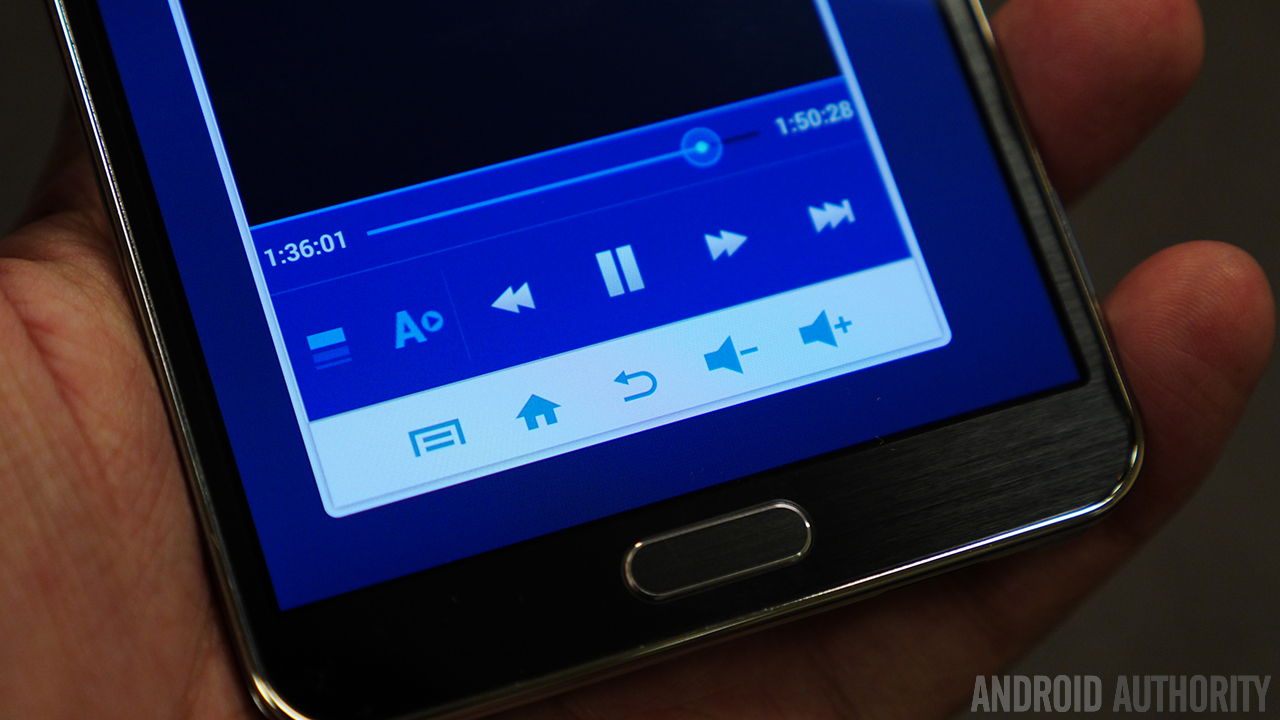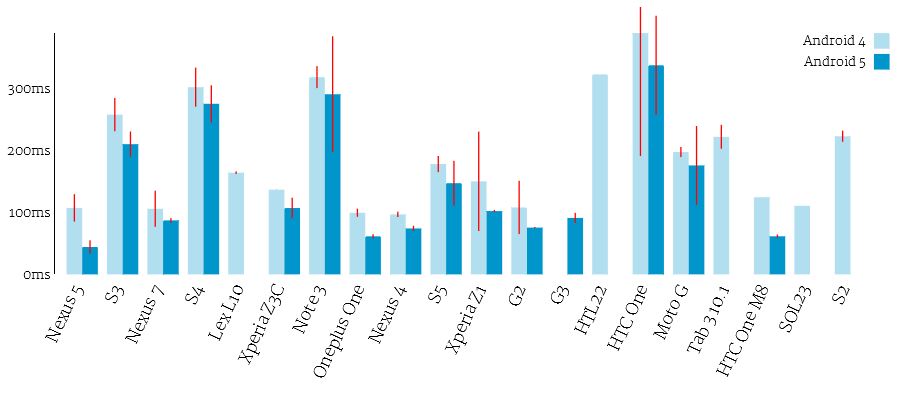Affiliate links on Android Authority may earn us a commission. Learn more.
Android is still suffering from horrendous audio latency
Published onJuly 10, 2015

It has been a little while since we last looked at the long running, unresolved issue of audio latency and Android. I wish I could tell you that things were all fixed up with the roll-out of Android Lollipop, but sadly there doesn’t appear to have been enough of an improvement.
Results compiled by Nervous Systems using data collected by the SuperPowered measurement application, which we talked about before, show that the most popular Android handsets are still far too slow at providing a round-trip from jack/mic to speaker for real-time audio processing. The results from the 20 most popular phones can be seen below.

On the plus side, there has been an improvement since Android 5.0 Lollipop, with many phones showing around a 40ms reduction in latency. But the final results are still far too high for real-time processing. It is especially disappointing that Apple devices score less than 10ms in the same test. Despite showing the biggest improvements, even the Nexus 5 doesn’t come close.

This issue is a problem not because it affects day-to-day audio playback, but because it is still locking Android out as a creative platform for real-time audio. Real-time apps that require jack or mic data just aren’t feasible with Android, years after the issue was originally raised.
Sadly, there’s not much we can do about it, other than keep complaining and hoping that Google comes up with a solution.